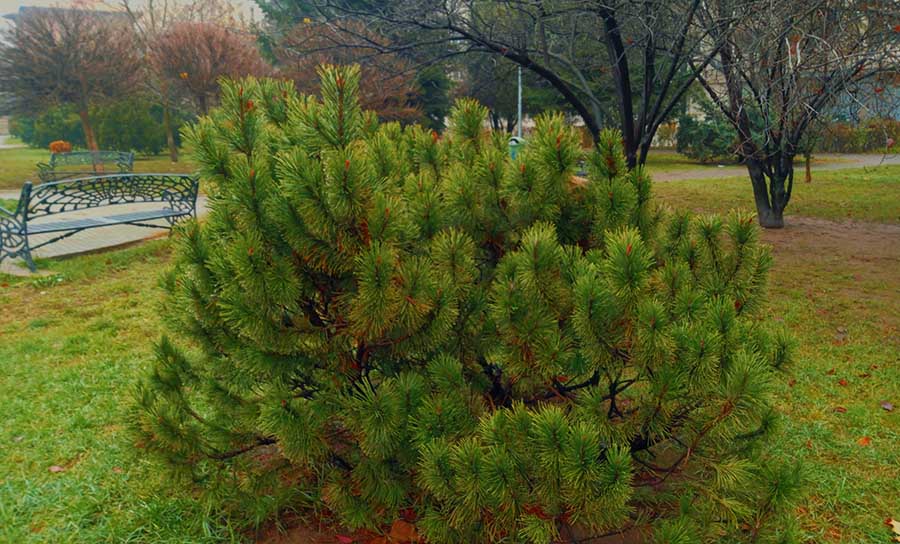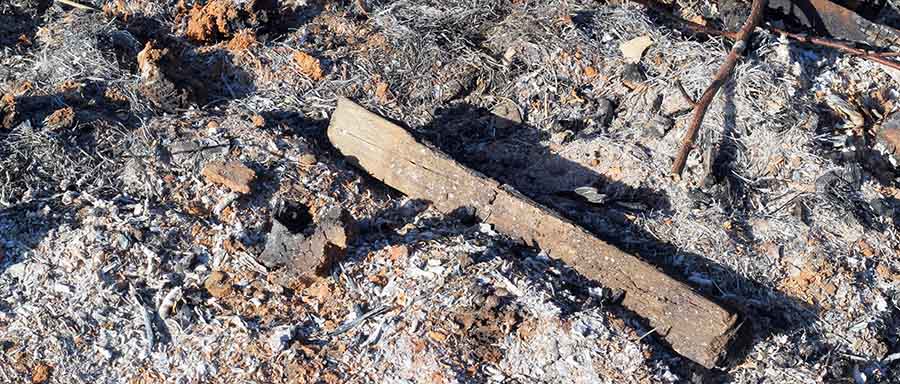When you’re dealing with Evergreens, proper fertilization will ensure lush and beautiful needles. But, knowing the right fertilizers to use is vital for the health of your trees. And knowing whether evergreens like wood ash or not is a great place to start.
What functions do wood ashes serve? The aforementioned question and other interesting questions are what this article is going to deliver, so if you want to know about wood ash as a fertilizer, you’ve come to the right place.
Wood ash possesses chemical compounds that raises the pH level of the soil and reduces acidity. Evergreens thrive better in a soil that is highly acidic. Therefore a chemical compound that reduces the acidity of the soil is not good for the growth of Evergreens.
Evergreen is a botanical term used to describe plants that usually have leaves (typically needles) green throughout the year. That is why it termed “Evergreen,” meaning its leaves will ever be green regardless of the atmospheric or environmental condition; it denotes the longevity of a leaf’s greenness.

Unlike deciduous plants, these leaves do not experience foliage loss in response to a type of season, either winter or dry. Examples of the different types of evergreens plants, which can either be a tree or a shrub include but are not limited to the following; holly, boxwood, pine, blue spruce, winter heath, etc.
What Is Wood Ash Exactly?
Wood ash is the powder form of what’s left after a plank of wood has undergone combustion. The wood combustion or burning can either be in a fireplace at home or in another environment.
This powder has been regarded to possess great benefits and has been often used by gardeners as a source of potash. Some of the chemical compounds and compositions are the Calcium carbonate (CaCO3), Calcium oxide (CaO), Iron Oxide, phosphate, potash, etc. Other factors that contribute to the chemical composition of the wood ash are Fly ash, Metallic oxides, mercuric oxide, and Carbon dioxide.

Also, environmental factors contribute to and affect the composition of wood ash. An environmental factor such as the type of environment the wood was grown, the age, and other growing conditions. All of these factors affect the growth of the wood. In the same manner, it will also affect the composition of the wood ash after it has been burnt or combusted.
Wood Ash, aside from being a source of potash, has several other beneficial uses and functions. However, for the subject of this article, wood ashes shall be discussed in relation to evergreens.
Explained below are sub-topics that will explain in detail the subject matter; “Do Evergreens like Wood ash?”
- Is Wood Ash Good For Evergreens?
- Can a Wood Ash Be Used As A Fertilizer?
- Which Plants like Wood Ashes?
Let’s dive into each and find out more about wood ash and evergreens.
Is Wood Ash Good For Evergreens?
The very first to be discussed; Is Wood Ash Good For Evergreens?
Evergreens cannot grow well in a soil that has a low acid level. Wood ash on the other hand reduces the soil acidity.
Wood ash possesses many chemical nutrients and composition that have been proven to be beneficial and useful. Now the question is, will the chemical composition and compounds of wood ash also be of equal benefit to evergreens? Being of benefit will amount to the sustenance of the evergreen, longevity, and not a decline in health.
Wood ash is highly rich in nutrients such as Potassium, Magnesium, Calcium, and Phosphorus. These nutrients help in raising the pH level of the soil. Not only that, these nutrients also actively function as a liming agent, which in turn seeks to reduce the acidic level of the soil and increase pH.
As much as an acidic soil level and reduced pH level is not good for plants. They are some plants that are an exception to this rule, i.e., evergreens. Evergreens and a few other plants grow best in a highly acidic soil. The use of wood ash reduces that acidic level, which is not in the best interest.
What makes and qualifies an evergreen as evergreen is the constant coloration and longevity of leaves’ greenness. The moment the soil is short of the requisite acidity needed for the evergreen to prosper, it begins to discolor, lose its greenness, have stunted growth, and become susceptible to diseases that might eventually kill the plant.
Can Wood Ash Be Used As A Fertilizer?
Second on the list, a more interesting question; Can Wood ash be used as a Fertilizer?
Wood ash is rich in chemical compounds such as potassium, magnesium and calcium which is highly beneficial for the soil. For many plants, a little wood ash sprinkled around the garden works as an excellent fertilizer.
One of the wide uses of Wood ash is that it can be used as a fertilizer. Wood ashes are organic fertilizers. Organic fertilizers are fertilizers that are derived through natural means such as manure, vegetable matter, etc. Wood ash is also a type of fertilizer obtained through a natural process (combustion).
Therefore, yes, wood ash is a fertilizer and can be used as one. Its organic compounds and chemical composition have always been used to enrich and fertilize the soil. Wood ashes are rich in nutrients such as lime, potassium, and more, which fertilizes the soil.
Tip: I’ve written in-depth articles about why plants need nitrogen, phosphorus and potassium. Check them out!
Chemical compounds such as Potassium, calcium carbonate, etc., function as a liming agent. In turn, these liming agents serve the purpose of neutralizing soils that are acidic or soils that have a high level of basicity (alkalinity).
When a soil has an acidic pH, it affects the plant nutrient uptake. It also influences the chemical reactions by controlling the chemical form of the nutrients. Wood ashes reduce the acidic level of the soil and increase its pH, as mentioned.
Wood ashes can also replace inorganic compounds containing calcium, magnesium, potassium, and phosphorus. It can be used to amend organic hydroponic solutions.
However, the best method to make an application and use of the wood ash fertilizer is to scatter it lightly or compost it first alongside other compost. The reason for this is because wood ash fertilizer will create lye when mixed with water.
Lye is a strong alkaline that will cause severe and extreme chemical burns when exposed to the plants, or your skin for that matter. But when you compost the wood ash, it limits to a considerable extent the potency of it burning your plants.
As much as wood ash functions as fertilizer, it is ideal you are acquainted with the pH of your soil, so you will know the quantity of wood ash needed and the methods of application. Too much wood ash can cause your plants more harm than good, contrary to what you have set out to achieve.
Tip: You should place the ash it right around the drip edge as shown in the video here:
Which Plants like Wood ashes?
Lastly, which type of plants like wood ash?
Wood ash is of benefit to all types of plants except with a few exceptions which will be explained below.
No doubt, wood ashes are of great nutritional benefit to the soil. However, it should be noted not all kinds of a plant can wood ash be used for. Wood ash will only deteriorate the condition of some plants due to their unique chemical composition. Therefore it is advised you know your plants first before you proceed to make use of wood ash.
Therefore outlined below are the types of conditions which the use of wood ash are recommended for.
- Plants in a soil that is highly acidic and requires a higher pH.
- Plants that are nutritionally deficient of Potassium.
- Plants in a Pest or Disease Infested Area
Some plants that like wood ash include onion, cabbage, tomatillos, collards, aragula, and broccoli.
Some plants that do NOT like wood ash, and prefer acidic soil are blueberries, raspberries, strawberries and many other types of berry producing bushes and plants.
It was earlier stated in the article that wood ash serves as a liming agent that can help increase the pH level of the soil and as well reduce the soil acidity.
Using wood ash can make the soil alkaline, which is not in those plants’ best interest that prefer acidic conditions.
Therefore the best and appropriate thing to do before applying wood ash as a fertilizer is to test the acid and alkaline level of your soil.
Plants that are nutritionally deficient of potassium, magnesium, calcium, and phosphorus will enjoy the wood ash to thrive and survive. Wood ash is highly rich in the above-stated nutrients. This nutrient affords the plant a healthy growth as well as good flowers and fruit. Conversely, when a plant is deficient of potassium, it leads to discoloration and browning of the leaves and a stunted growth affecting the leaves and flowers.
Plants in a Pest or Disease Infested Area: Pest and diseases pose great threats and harm to plants. Pests overrun can die or at best have their growth stunted.
While diseases also affect plants having quite a number of adverse effects. Making use of Wood ash is not a bad idea to save and protect some plants from a pest and disease-infested area.
Diseases and pests find it hard to survive in a soil that has a high pH level. Even cancer does not thrive in a high pH environment. Therefore using wood ash can help keep a plant’s health intact.
Wood ashes prevent pests from overrunning your plants, giving them a chance of survivability. The salt present in wood ash prevents pests such as slugs, snails, etc.
If you are searching for a natural source of nutrients such as potassium, magnesium, calcium, and phosphorus, you might want to consider using wood ash as a benefit to both your soil and the plant. However, as it has been explained above, ensure you test your soil level and know your plant well so your use of Wood ash won’t leave with your plants with greater harm.

